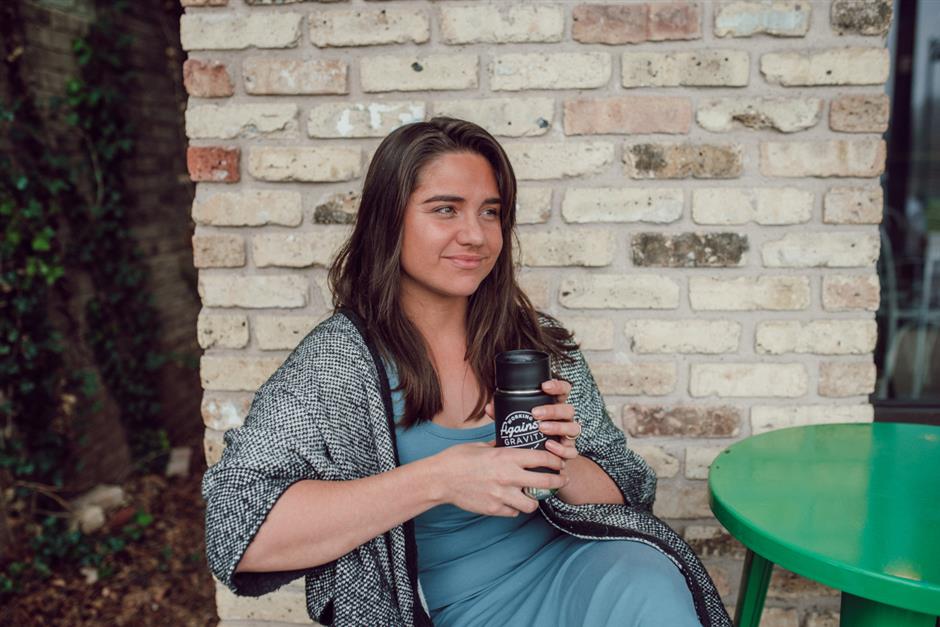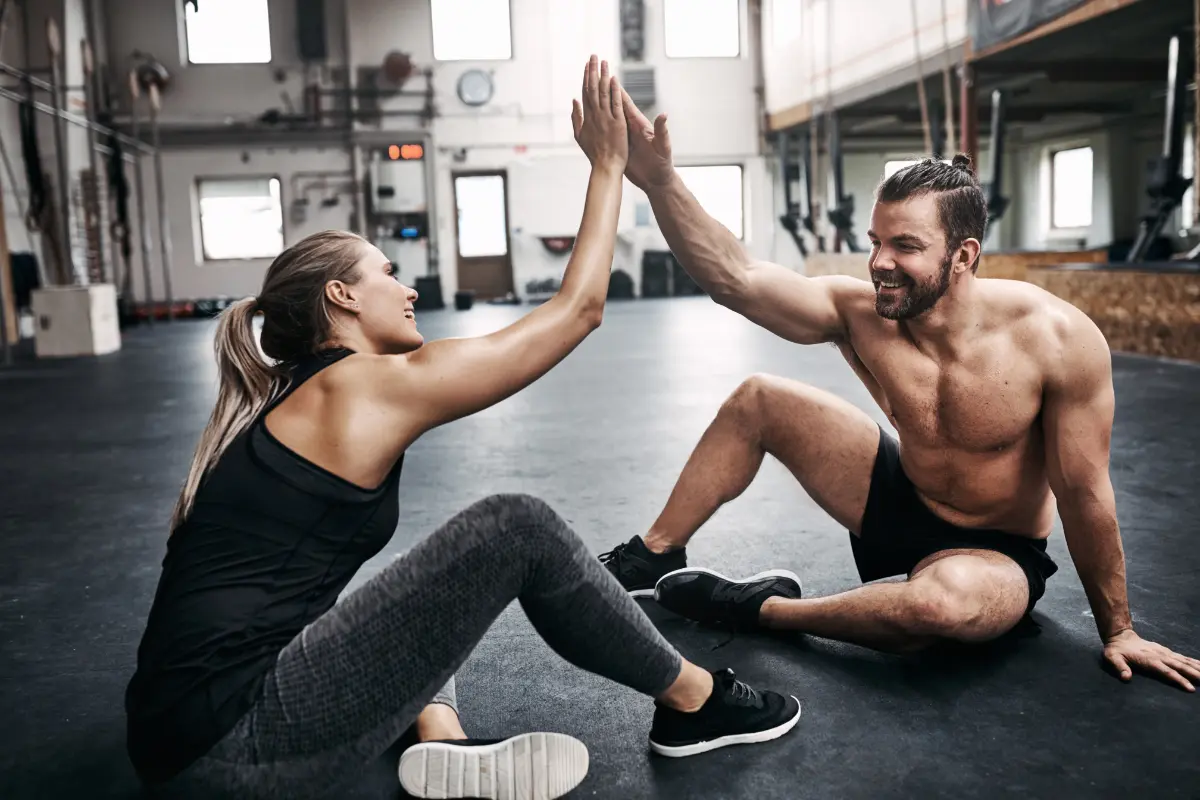
Who are you dieting for?
In other words: what’s your true motivation for wanting to change your body?
Unless you address underlying beliefs and judgments about yourself, it will never be enough to reach a certain scale weight or body composition.
Those beliefs and judgments will still be there.
And not only will they still be there, but you'll struggle to see your goals through because they're coming from a place of self-loathing.
Advertisement
After all — when is the last time you started and finished something that you hated doing?
So let’s take a step back. In this article, we’ve got six questions to ask yourself before you start that new diet plan.
Answering these questions will ensure:
- you’re ready for true transformation (inside and out), and
- you’ll sustain your progress long-term.
Let’s dive in!
Reflecting on Your Motivation to Change
Most of us start new diets and fitness regimes with loads of motivation.
Advertisement
We have idyllic visions of losing body fat, feeling healthier, and performing well in the gym.
And that’s great! It is wonderful to pursue better health, body composition goals, and performance goals.
But here is a reality that is often overlooked:
Many of us are also motivated by wanting love and acceptance from others.
We aspire to fit a certain mold. To look a certain way.
Advertisement
Deep down, the desire to be seen is often the true motivation behind our endeavor.
We understand and are right there with you. Zero judgment.
It’s hard to get through life without wondering, “Does my physical appearance play a role in how I rank socially?”
Being praised for our looks is so prominent in our society. Our desire to fit the beauty standards is becoming a higher and higher priority.
So let’s talk about it. Who, exactly, are you dieting for?
Advertisement
A Body Image Article on a Nutrition Coaching Website?!
Are you thinking it’s strange to read an article about the problems with society’s beauty standards on a nutrition coaching company’s website?
We get it.
And it’s true that, as a nutrition coaching company, we’ve built a whole business on your motivation to change your body.
At the same time, however, here is something we’ve discovered about people who sign up with WAG. They’ve told us they were motivated to join because they feel they’re not enough.
They tell us they aren’t:
Advertisement
- Beautiful enough
- Thin enough
- Muscular enough
- Fit enough
- Disciplined enough
- “Enough” in general
We’ve heard this from thousands of clients — and we’re paying attention. We’ve evolved as a company because of it.
When WAG was a young company in 2015, our game was ‘help people get jacked and lean’.
After witnessing the trials and tribulations of our clients, however, we’ve learned that our coaching needs to be holistic.
We cannot focus solely on macros and “calories in, calories out”. If that’s all we offer, we aren’t actually helping anyone.
Thus, over time, our program and coaching philosophies have grown and deepened.
Advertisement
We stand by the belief that there’s nothing inherently wrong with wanting to change your body. It’s great to pursue goals of fat loss, muscle gain, etc.
(And, yes, we still use “before” and “after” photos for our marketing. Trust us, if there was another way to visually represent overall transformation, we’d use it!)
The reality, however, is that clients often come to us for what they think they want…
… then we do our best to give them what they truly need.
Here is something many people do not realize when they embark on journeys to change their bodies:
Advertisement
You can’t lose weight without simultaneously losing your self-image baggage.
Put another way:
A diet plan will fail without an accompanying self-acceptance plan.
Deep, right? We promise it’s true.
We’ve interviewed many WAG clients shortly after they joined our program. Many of them signed up with us during a dark time in their lives.
Advertisement
They described sadness and shame around their bodies, health, and identities.
These interviews have helped us understand the huge responsibility that is on our team when we begin working with these clients.
We’ve come to realize that, as coaches, we must honor the reality that before we can make weight loss a priority — we need to address self-image issues, too.
Questions to Ask Yourself Before Starting a Diet
So, where to begin?
Well, before starting a new diet or nutrition plan, we recommend asking yourself these two questions:
Advertisement
- What beliefs and judgments do I have about myself and my body?
- Are these beliefs and judgments impacting or influencing my decision to pursue dieting?
Be really honest. It’s okay (and normal!) to have some pretty harsh self-judgments floating around your mind. Many of us do!
Keep your answers to these questions in mind when you hire a nutrition coach.
Even if you notice some harsh inner judgments toward yourself, it’s still probably a great idea to hire a coach.
Being mindful of your answers will simply ensure you don’t hire the wrong coach (one who may reinforce negative beliefs you’re ready to shake off).
You do want to hire a coach who is:
Advertisement
- Ready to really listen
- Compassionate and understanding
- Prepared to help you reach your body composition goals and to help you move past limiting beliefs about yourself and your body
We also strongly recommend sharing the beliefs and judgments you have about yourself with your new coach so that they can be on the same page with you (and share advice that might help!).
What are your expectations for your nutrition plan?
So now you’re ready to begin your new nutrition and/or fitness plan.
Ask yourself: what are my expectations for this plan?
You are probably looking forward to seeing a physical transformation. But what else are you hoping will happen?
For example, are you expecting that physical changes will equate to a boost in confidence or self-esteem?
Advertisement
Do you expect that losing a certain amount of weight will lead to overall life happiness?
This is important to address because, if we aren’t careful, a health and fitness journey can take over our entire identity.
We may expect that changes in our body composition will also automatically change how we perceive ourselves.
Believe it or not, many times, the opposite will happen.
We may actually become more critical of ourselves after experiencing body composition changes.
Advertisement
We may wonder why our levels of confidence and self-esteem haven’t skyrocketed even after experiencing major physical changes.
The reason for this disconnect?
You are so much more than your physical body.
Who are you, beyond your physical body?
This brings us to the next question to ask yourself before embarking on your body transformation journey.
Aside from being someone who eats well and exercises, who are you?
Advertisement
Identifying only with your body will leave you in a state of perpetual dissatisfaction.
During your health and fitness journey, it’s important to reflect on (and frequently revisit) all the other aspects of life that you identify with.
For example:
- You’re a parent, sibling, partner, son, daughter, and/or friend.
- You’re an artist, engineer, writer, lawyer, student, coach or whatever your profession is.
- You have hobbies and passions. You love to dance, paint, build, cook, decorate, read, garden, or take care of your pets.
- You’re someone who loves to help others, is religious, or is the life of the party.
You aren’t just a person who focuses on their nutrition and works out.
Does your health and fitness journey seem to require you to sacrifice any of those important roles or aspects of your identity listed above?
Advertisement
If so, it’s worth pausing to notice that and remember — you are so much more than your body.
Are your expectations for your body reasonable?
The next question to ask yourself is about the level of control you want to have over your body.
There’s no way around it — human bodies fluctuate. Constantly!
Our bodies fluctuate based on:
- The temperature
- The types of foods we’ve eaten
- The time of day
- The time of the month
- Stress levels
- Intense workouts
- Illness
- Plus many more factors outside our control
You’ll save yourself a lot of frustration by releasing the idea that you’re only your best self when you look a certain way.
Advertisement
Here are some common examples we’ve observed with clients:
- “If I’m bloated, I’m unattractive.”
- “If I overeat, I’m undisciplined.”
- “If my digestion is ‘off’, I did something wrong.”
- “If I didn’t perform well in my workout, I’m a loser.”
You’ll feel far more powerful and confident if you attach expectations only to things you can control.
For example:
- “Every day, I make time to do something I enjoy.”
- “If I’m bloated, I choose to eat things that will make me feel better for the rest of the day.”
- “When I overeat, I forgive myself and ensure my next meal will make me feel better.”
- “When I feel under-recovered, I do something to care for my body.”
Is this something you can sustain long-term?
Many people begin health and fitness plans from a state of desperation. They are willing to do just about anything to see quick changes on the scale or in the mirror.
But at WAG, we believe strongly in plans that are sustainable for the long-term. No “quick fixes” here.
Advertisement
And we also believe in education. We want you to understand the pros and cons of achieving your stated goals.
That brings us to the next question to ask yourself: is what you’re doing sustainable?
Is it a short-term diet or a change to your overall lifestyle?
Here are some things to consider when assessing the sustainability of your diet:
Do you understand the costs involved with getting lean?
Advertisement
Is this diet plan adding significant stress to your life?
Are you spending a very long time on a weight loss journey without coming up for air?
Are you pursuing body composition changes and incorporating self-acceptance practices?
How a Nutrition Coach Can Help You Make Real Progress
There’s a misconception that nutrition coaches exist solely to help you pursue infinite weight loss, where you change your life by becoming a size zero.
There is enough free information online to help you do that. At WAG, that’s not what we’re about.
Advertisement
The fact is, perpetual weight loss isn’t healthy for anyone.
What happens when you’ve lost weight — but continuing to focus on weight loss is all you know?
Consider how different your next nutrition plan could be with the support of a human being who will help you transform how you see yourself and help you develop a healthy relationship with food.
A good coach is someone who can help you observe and reflect on your own thought processes.
They’ll offer a compassionate, unbiased perspective as you work together as a team to figure out what works (and doesn’t work) for you.
Advertisement
If that kind of support sounds like the right fit for you, check out Working Against Gravity’s 1-on-1 individualized nutrition coaching. Add your name to the waitlist to be notified when coaching spots open up.
Let your transformation — internally and externally — begin!
Dani Sheriff
Schedule a Free Intro Call
Working Against Gravity has led the macro tracking and health space for over a decade. Our team doesn’t just understand the science of nutrition—we’ve spent years mastering the art of tailoring it to fit your life. That means no cookie-cutter plans, just real strategies that have worked for over 30,000 people.
Schedule a free call with our team to learn how working with a 1-on-1 WAG coach will help you reach your goals.



